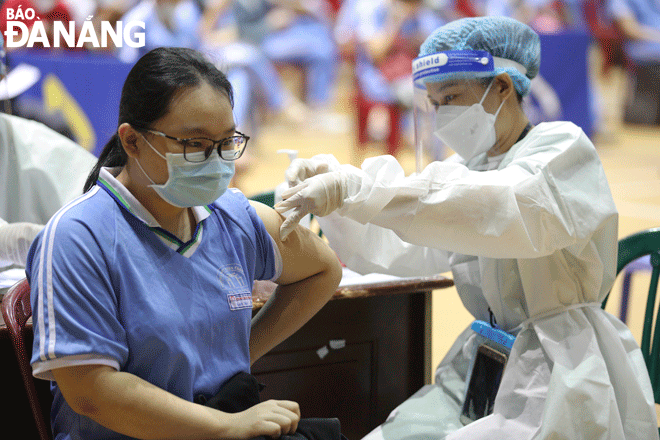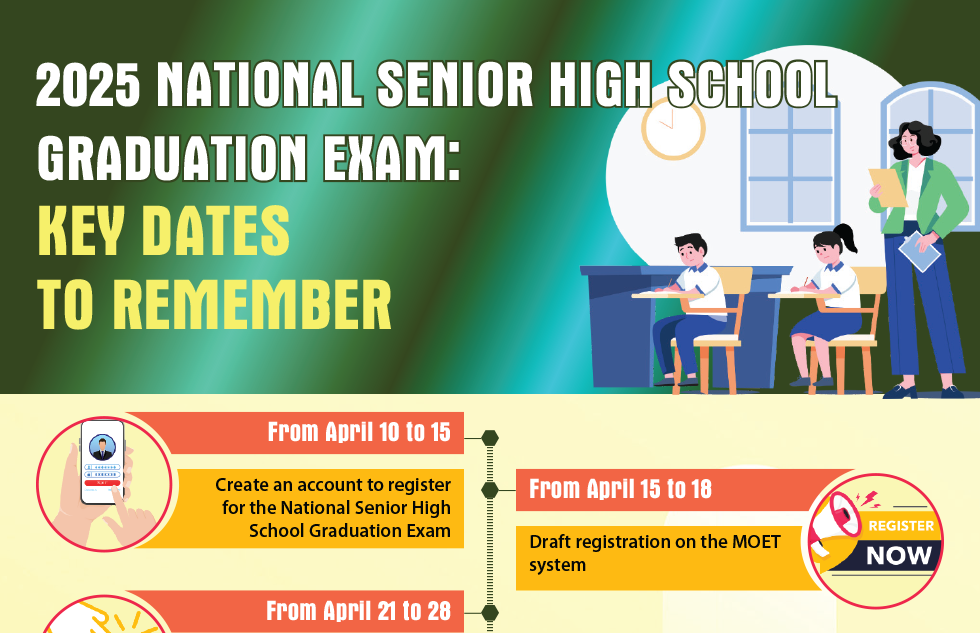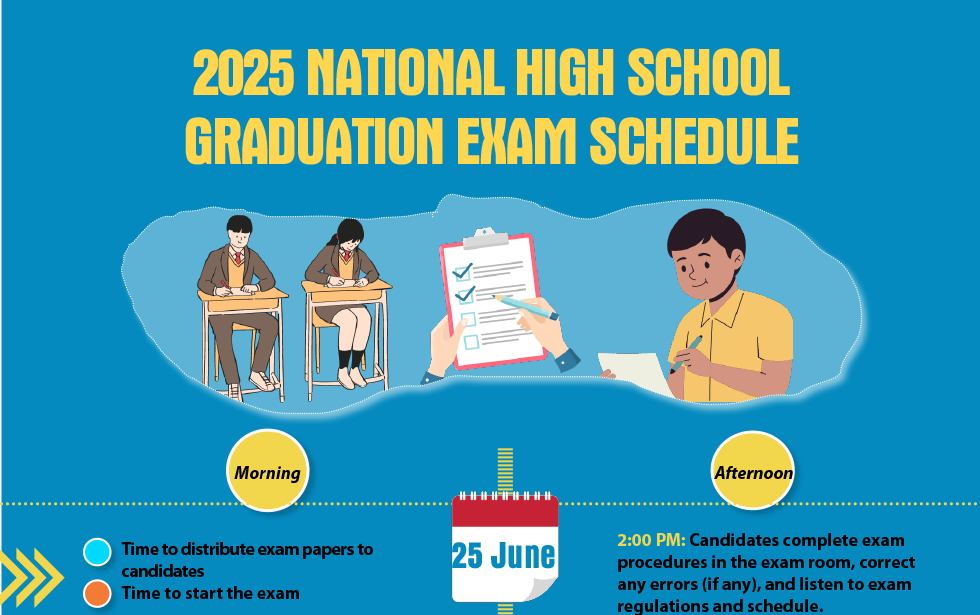COVID-19 in children: What families need to know
Amid growing parents’ interest in the signs and symptoms of COVID-19 in children, and how to take care of, and treat, child patients with the virus, the Da Nang Newspaper introduces some basic and helpful COVID guides for them.
Here's what parents need to know.
 |
| A pupil getting vaccinated against COVID-19 at the Da Nang-based Tien Son Sports Arena |
When do you suspect that a child is infected with COVID-19?
A child has an acute respiratory infection (fever and at least one symptom of a respiratory illness: cough, sore throat, breathing problems...).
Also, he/she has one of the following conditions:
- There are epidemiological factors related to positive cases
- Being hospitalized with symptoms of a severe acute respiratory infection that cannot be explained by other causes
- Having positive SARS-CoV-2 rapid antigen test result
When is it confirmed that the child is infected with COVID-19?
All cases with suspected symptoms and positive tests for SARS-CoV-2 by using Real-time RT-PCR technology..
What are the symptoms of children infected with COVID-19?
- The incubation period for the coronavirus is ranging from 2-14 days, and 4-5 days on average. Accordingly, child patients will have one or more symptoms such as fever, fatigue, headache, dry cough, sore throat, stuffy or runny nose, loss of taste/smell, vomiting and diarrhea, muscle pain, etc. However, most children experience mild COVID-19 disease or do not show any symptoms.
- Besides, there are other less common symptoms, including skin lesions (erythema of extremities, skin rash...), heart arrhythmia, acute kidney injury, serositis (pleural, peritoneal and pericardial effusions), hepatomegaly, hepatitis, and encephalopathy (convulsions, coma, or encephalitis).
How to treat COVID-19 child patients?
Children with asymptomatic or mild symptoms of SARS-CoV-2 infection can be treated at home, but some children with severe COVID 19 symptoms will need hospital care.
Treatment of mild COVID-19 cases without drugs:
- Stay isolated in one room, or follow the Ministry of Health’s instructions for at-home isolation.
- Children 2 years old and older should wear face masks.
- Giving your child plenty of water or oresol electrolyte solution.
- Breastfeeding fully (if the child is still breastfed) and eating a full range of complementary nutrients (if the child has already ate solid foods).
- Caregivers need to pay attention to personal hygiene for children (body, teeth, nose and throat).
- As for older children, instructing them to do some exercises in place and practice breathing for at least 15 minutes/day.
- Monitoring a child patient: measure the body temperature at least 2 times a day or when the child feels feverish. Measure SpO2 (if available) at least 2 times a day or when the child feels tired, fast breathing/shortness of breath. Daily medical declaration (by phone or prescribed software).
- Immediately reporting to healthcare workers when the child has abnormal symptoms such as: fever over 38 degrees Celsius, chest tightness, crying, sore throat, cough, shortness of breath, diarrhea, SpO2 level below 96%, fatigue, refusing to play, and poor feeding.
Drug treatment:
- Antiviral antibodies are only used for children aged 12 years or older who weigh 40 kg or more and have high risk factors for severe disease (children with underlying medical conditions and no contraindications to drug use); and children with mild/moderate disease who have not yet received oxygen support, have been ill for less than 10 days and have the consent of their guardians. Note: The authorized dosage is 600 mg of casirivimab with 600 mg of imdevimab. the drug is only used in hospitals as a single dose.
Supportive treatment:
- Use antipyretic drugs when the temperature is above 38.5 degrees Celsius, and take paracetamol at a dose of 10-15 mg/kg/time every 6 hours.
- Medicines to treat cough, with top priority given to to herbal cough medicine.
- Multivitamins and minerals can be used.
- Treat the underlying illness according to treatment regimen if any.
* Nutrition for children with mild and moderate COVID-19 symptoms?
- If the child only eats less than 70% of the needs, supplement with a high-energy formula of 0.75-0.8kcal/ml (children < 12 months) and 1-1.2 kcal/ml (children >12 months) .
- Children aged 2 years old and older need to drink 500ml of formula/day.
- For non-breastfed children, the amount of formula milk is calculated: 8-week-old babies consume 800ml of milk/day; for children under 8 weeks, the number of ml of milk = 800 - 50 x (8 - n), where n is the number of weeks of the baby's age; for children over 2 months, the number of ml of milk = 800 + 50 x (n –2), where n is the number of months of age of the child
- Provide enough water, especially fresh juices with many vitamins (for older children who have eaten solid foods).
Reporting by KHANH QUYEN - Translating by M.DUNG








